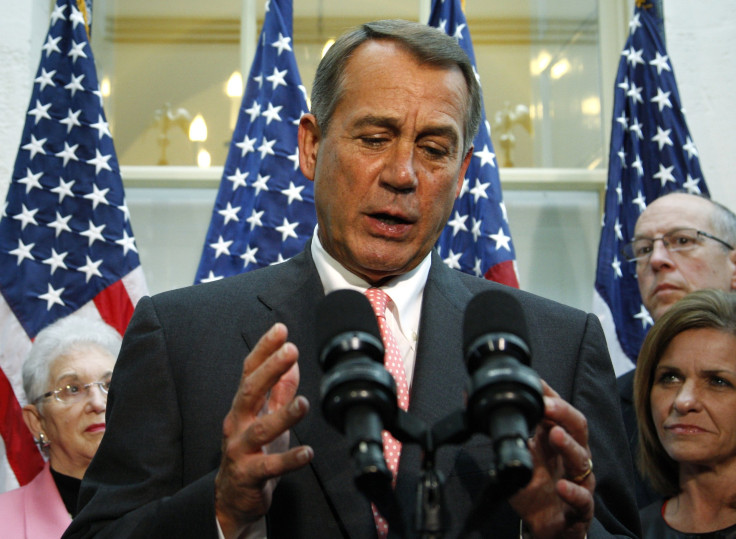Majority Of Tea Partiers Not Concerned About Breaching Debt Limit, Poll Finds

The tea party lives in a world in which breaching the debt ceiling will not have any consequences.
Two days before the U.S. government bumps up against its borrowing authority -- an event economists fear will spark a global financial meltdown -- Republicans in Congress are trying to please a wing of their party that doesn’t believe default is a threat to the economy.
According to a Pew Research Center poll released Tuesday, 52 percent of self-identified "Tea Party Republicans" believe the debt limit does not need to be raised at all. More broadly, the poll found that just over half (51 percent) of the whole public believe raising the debt ceiling in the next two days is “essential” while 36 percent say nothing serious will happen if lawmakers fail to act.
Of course, Americans do not come up with these ideas in a vacuum. Over the past several weeks, conservative lawmakers (the so-called default deniers) have downplayed the need to raise the debt limit, arguing, falsely, that the United States will not default nor will economic catastrophe result if the debt ceiling is not raised. That view is now being played back to them, particularly on the far right.
On the Democratic side of the aisle, two thirds (67 percent) say it is absolutely essential to raise the debt limit by Thursday. Democrats are also more optimistic about whether the limit will be raised in time, with 58 percent believing lawmakers will strike a deal before the deadline compared to 47 percent of Republicans who don’t believe the debt ceiling will be breached. A plurality of Republicans, 49 percent, don’t think their party will reach an agreement in time.
These numbers show the various pressures each party feels, with Democrats under more pressure than Republicans to strike a deal: Democratic constituents think their leaders need to and must come to an agreement, Republican constituents feel less overall urgency about raising the debt limit in the next two days.
The survey was conducted Oct. 9-13 among 1,504 adults and has a margin of error of +/- 2.9 percentage points.
© Copyright IBTimes 2024. All rights reserved.












